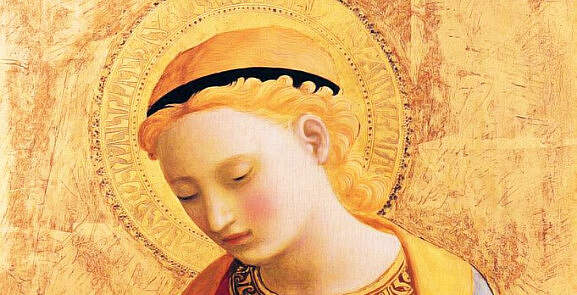
At a first glance, Mary’s act of faith was easy and could even be taken for granted. She was to become the mother of a king who would reign forever in the house of Jacob, mother of the Messiah! Wasn’t this the dream of every Hebrew girl? But this is a rather human and worldly way of reasoning. True faith is never a privilege or an honor; it means dying a little, and this was especially true of Mary’s faith at that moment.
Nowadays we are quick to talk about the risk of faith, and we generally mean the intellectual risk, but Mary faced a real risk! Mary is the only one to have believed in a “situation of contemporaneity,” that is to say, she believed while the event was taking place and prior to any confirmation by the event or by history. She believed in total solitude.
By the mere fact of believing we therefore find ourselves in Mary’s wake, and we now want to look more deeply at what following in her wake really means. From reading what concerns Mary in the Bible, we can see that the Church, right from the Fathers, has followed a criterion that can be expressed thus: Maria, vel Ecclesia, vel anima: “Mary, or rather the Church, or rather the soul.” The meaning is that what is said especially of Mary in Scripture is universally meant for the Church, and what is universally said of the Church is meant personally for each believer.
A simply objective and dogmatic faith is not enough either, if it fails to lead to an intimate I-you personal contact with God. A Christian can easily reach the end of his life without ever having made a free and personal act of faith, which alone justifies the name “believer.” It is necessary, therefore, to believe personally, but in communion with the Church; we must believe in communion with the Church, but personally.
Fr Raniero Cantalamessa
Exerpts from his sermon of his first Advent reflection at the Redemptoris Mater Chapel in the Apostolic Palace, on December 6, 2019